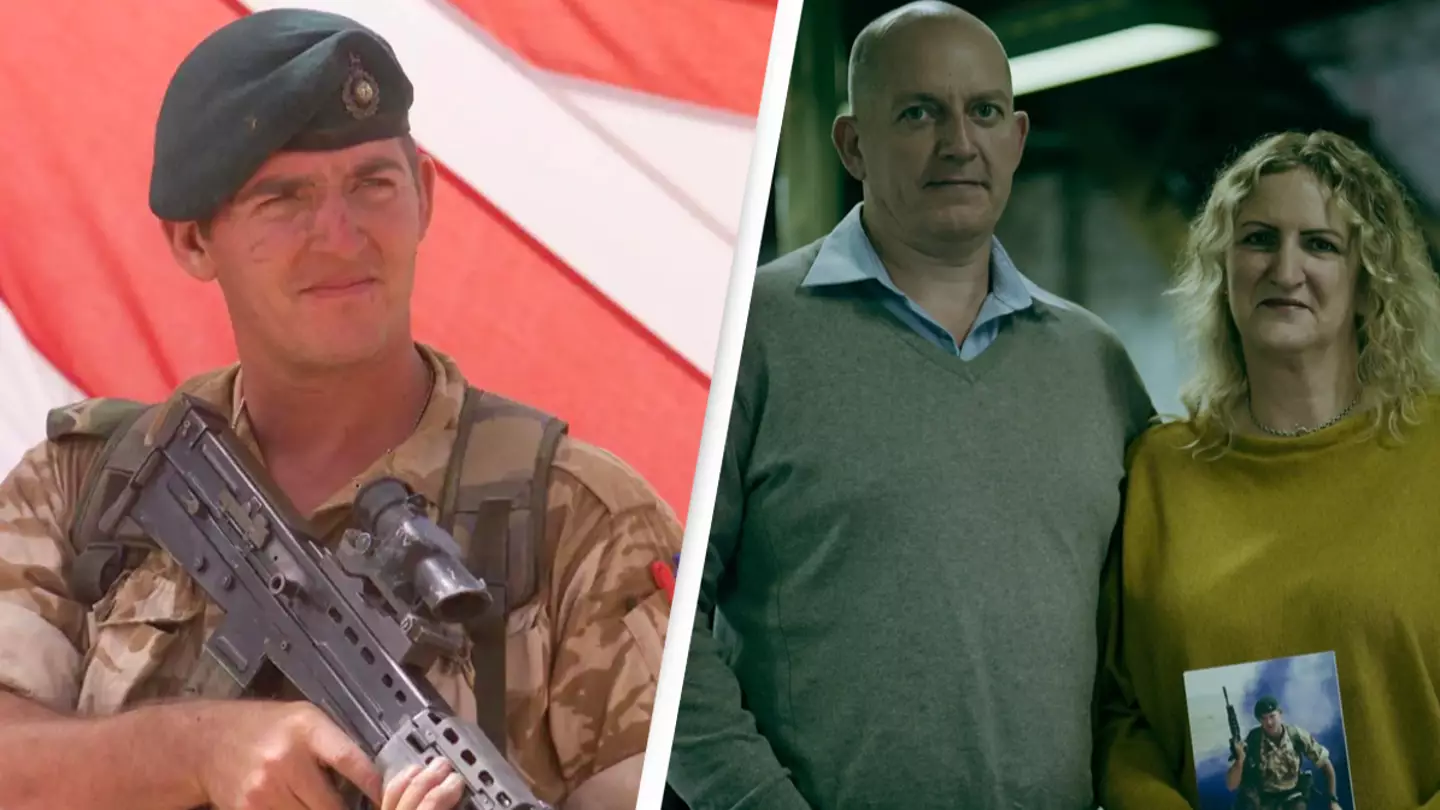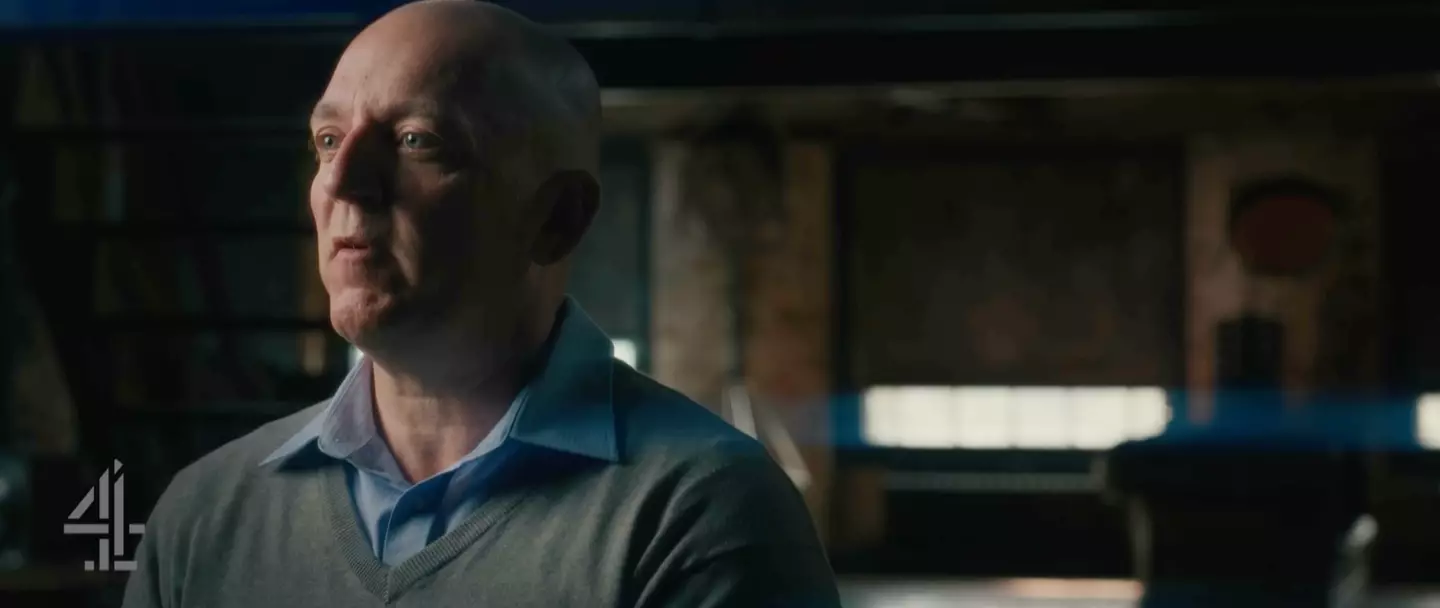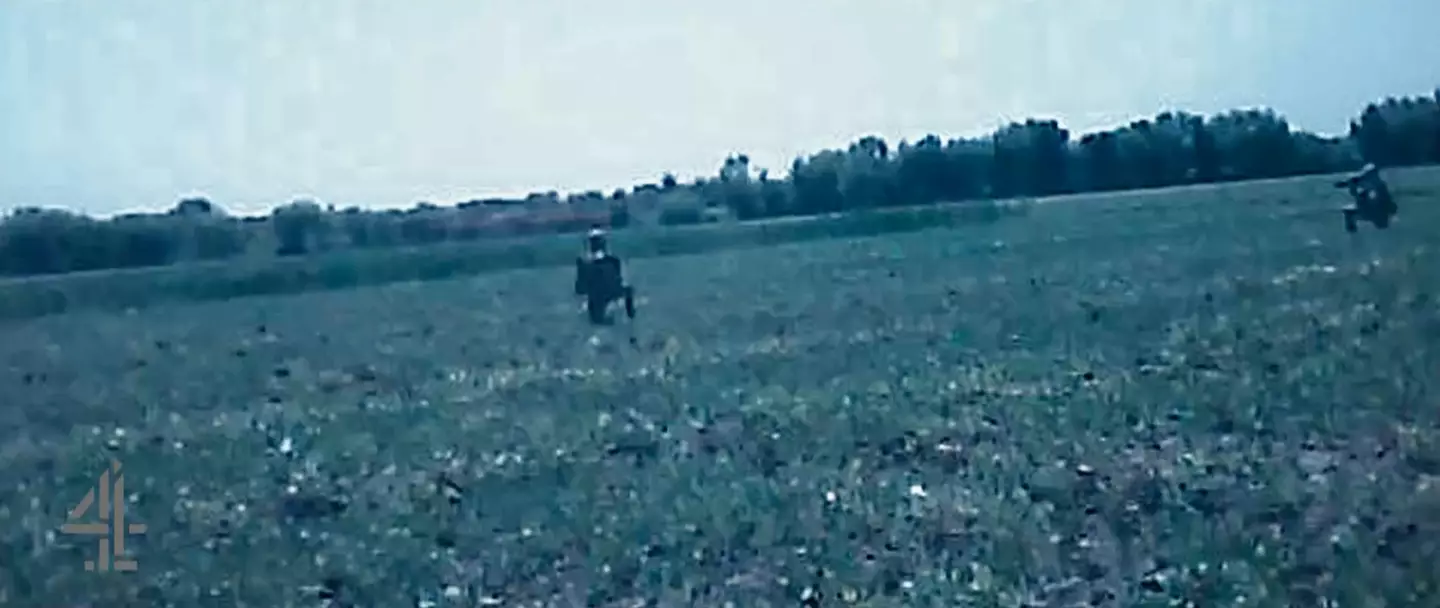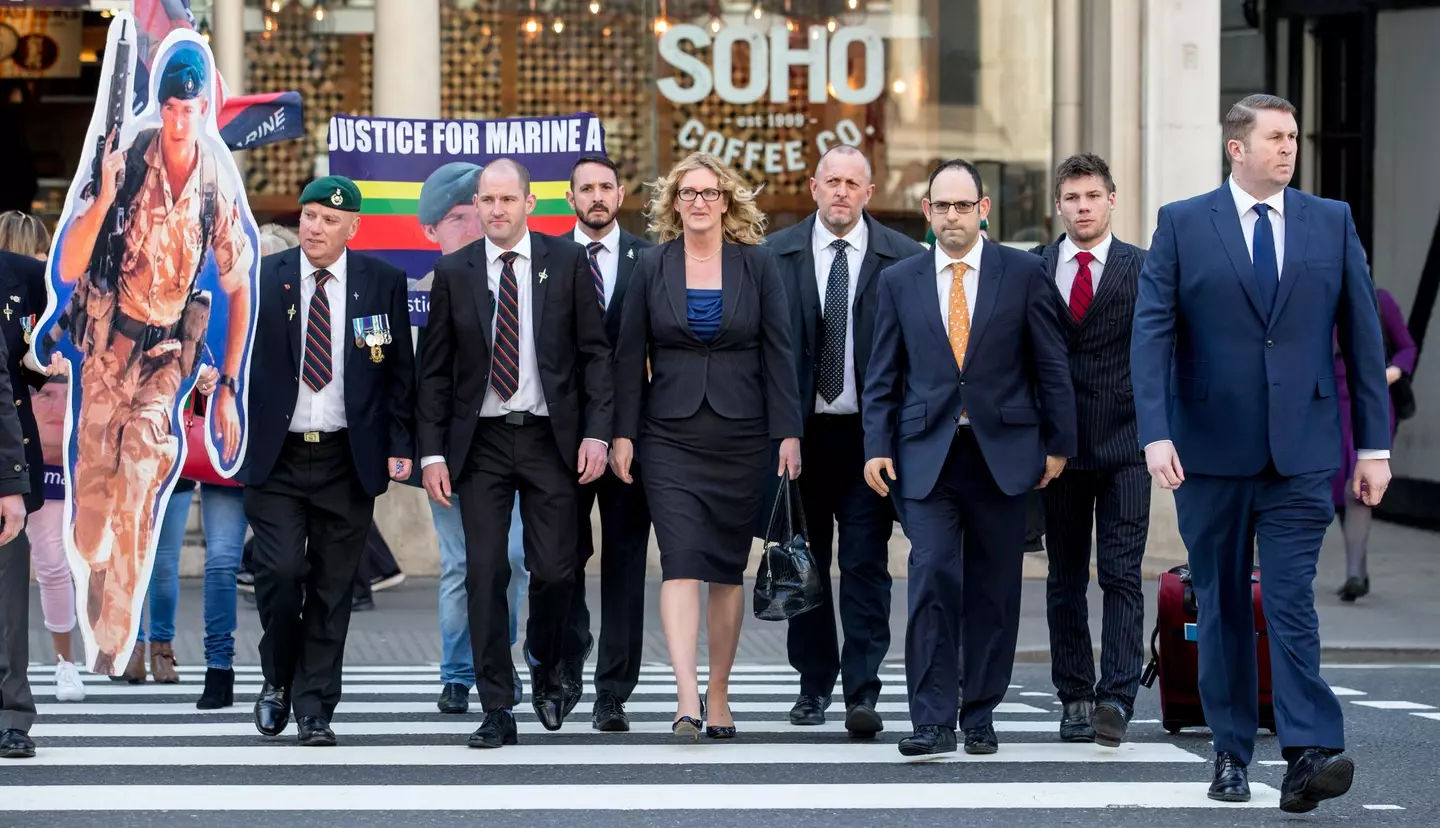
A new Channel 4 documentary explores one of the most controversial events of the Afghanistan war, which saw a Taliban insurgent shot dead by a British Royal Marine in circumstances believed to have violated international legal standards.
Nearly nine years ago, Alexander Blackman became the first British soldier to be convicted of wartime murder while serving abroad since World War II, and was sentenced to life imprisonment with a minimum term of 10 years.
But his story did not end there, as a highly-publicised campaign sought to highlight how the chain of events leading to his murder conviction weren’t necessarily as straightforward as damning helmet footage suggested.
Watch a clip from new documentary War and Justice: The Case Of Marine A here:
Advert
Blackman, who was given the anonymous pseudonym of ‘Marine A’ during early legal proceedings, had been in Helmand province in September 2011 when his company received a report of an attack on a nearby checkpoint.
After an Apache helicopter shot 139 anti-tank bullets at the Taliban insurgent on the ground, Blackman and his men swept in to carry out battle damage assessment, expecting to find a dead body.
Speaking in War and Justice: The Case Of Marine A, which airs on Sunday 31 July on Channel 4, Blackman recalled: “I was quite honestly expecting to see him spread out over the field, because they’d fired 130-odd 30mm cannon shells at him. And these are shells that are designed to penetrate tank armour.
“I was quite surprised that he seemed relatively intact at the time.”

He added: “I searched him for weapons, found that he in fact did have a rifle on him – AK47, fully loaded magazine and a spare, and a live hand grenade. He opened his eyes, and I realised at that point he was still alive.”
Official rules dictate that a wounded insurgent should be treated and transported to hospital, under what’s known as the Geneva Conventions – a series of four treaties and additional protocols that establish legal standards for the treatment of soldiers, prisoners of war, civilians and others during war.
However, footage from one corporal’s helmet camera showed that this was not what happened.
“Anybody want to do first aid on this idiot?” Blackman could be heard asking his men, to which a number of people reply: “No.”
Another then told the sergeant: “I’ll put one in his head if you want?”
Moments after the Apache helicopter left the site, the insurgent was shot and killed by Blackman, who said: “Shuffle off this mortal coil, you c**t."
He then added: “I just broke the Geneva convention.”

Blackman was later sentenced to life imprisonment with a minimum term of 10 years, and was dismissed with disgrace from the Royal Marines. Two others, Marines B and C, were acquitted.
While his term was eventually reduced to eight years following an appeal, his wife Claire sought to have his conviction overturned altogether, launching a huge four-year legal campaign with the help of new defence counsel Jonathan Goldberg.
Their argument was that Blackman was only ever assessed by a psychiatrist after being convicted – meaning his potential mental state was never factored into the case.
“Extraordinarily, no psychiatric evidence whatsoever was commissioned or obtained prior to conviction,” Goldberg said in the documentary, noting how Blackman had been serving in an area described as the ‘Heart of Darkness’, where ‘appalling war crimes’ were being carried out by the Taliban.
A second appeal hinged on a psychiatric report that stated Blackman had Adjustment Disorder (AD) – believed to be the first time such a diagnosis has been linked to the killing of an enemy.
On 15 March 2017, Blackman’s conviction was reduced to manslaughter on the grounds of diminished responsibility, before he was released the following month.

In War and Justice: The Case Of Marine A, we follow the controversial case through never-seen-before combat footage and exclusive interviews, taking us ‘into the dark heart of those minutes in battle and the ensuing four-year legal campaign that his wife waged to set him free’.
A synopsis from Channel 4 says: “From a war against Taliban insurgents in Afghanistan to a legal battle in the UK, Marine A details one of the most controversial events in the 20-year war on terror.
“On the 15th September 2011 an unarmed and wounded Taliban insurgent was shot in the chest by a British Royal Marine, who went on to tell his men that he ‘just broke the Geneva Convention’.
“With an exclusive interview with Alexander Blackman, known to most as Marine A, it reveals the story of that one day in Helmand."
Commenting earlier this year, Anna Miralis, Commissioning Editor at Channel 4, said the incident was ‘one of the darkest moments in modern warfare’, adding: “This film will bring together testimonies of Blackman and others involved, as well as footage from that day in Helmand, to give us the most complete picture of what happened that day and the ensuing fall out.”
Watch War and Justice: The Case Of Marine A on Channel 4 at 9pm on Sunday 31 July.
If you have a story you want to tell, send it to UNILAD via [email protected]
Topics: Documentaries, Military